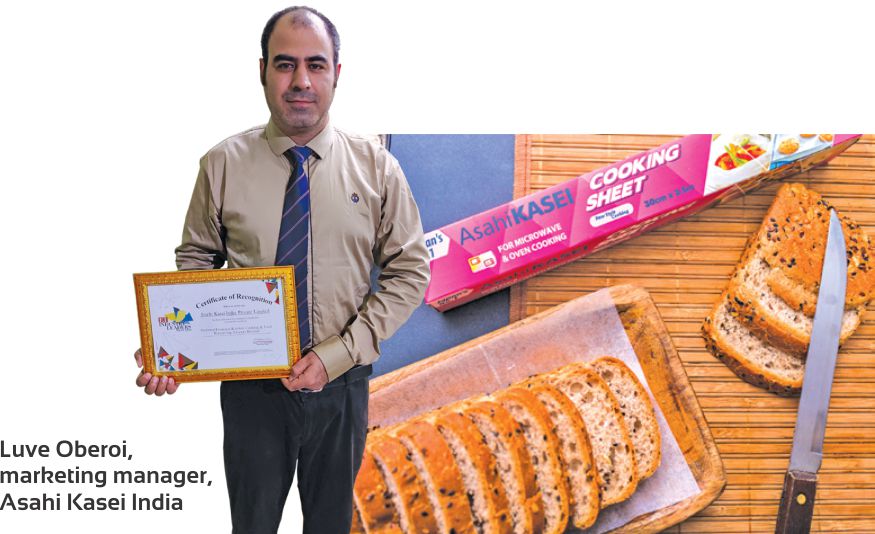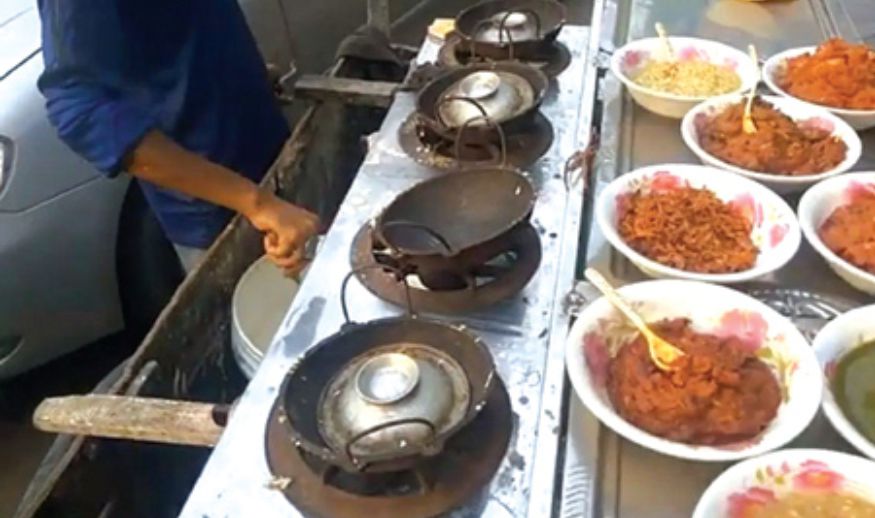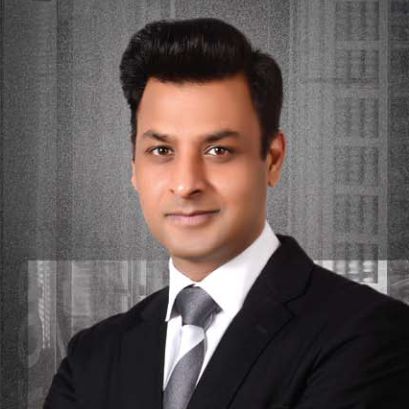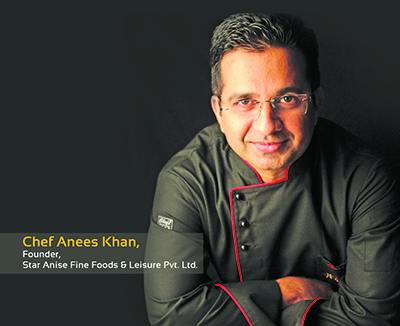
Rich’s Thought Leaders’ Forum brings together bakers from diverse formats of operations to prospect for solutions. A report:
In a trendsetting development, bakers across India will get to thrash out the most pressing issues in the industry together with their most valued supplier. Rich’s Thought Leaders’ Forum will huddle bakers together at round-table conferences in several cities not just to probe but also to scoop out solutions.
The first of the series of Rich Thought Leaders’ Forum, was organised by BakeryBiz magazine, it was held on August 13 in Mumbai. Unrelenting quest for quality was the single most pronounced theme that percolated the conference room at Hyatt Regency Mumbai which brought together five heavyweights from the industry.

The five bakery professionals — Ronak Mehta, Chef -Owner, Oven Fresh, Salahuddin Khan, Owner, Danish Foods, Saroj Samtani, Director/Partner, Aaro Foods Pvt Ltd (Hangout), Jignesh Patel, Owner, Pastry Point, Chef Vikas Seth, Corporate Executive Chef, Dish Hospitality Pvt Ltd —kept the conversation vivacious through to the end while Team Rich’s— Pankaj Chaturvedi, Executive Director & CEO, Rich Graviss Products Pvt Ltd, Ashutosh Goel, General Manager – Marketing, Rich Graviss Products Pvt Ltd , Chef Pankaj Jain, Corporate Chef, Rich Graviss Products P Ltd —made propitious interventions to get to the bottom of the issues being discussed. All participants concurred that the industry is not only growing but also witnessing drastic changes. “It’s growing and going to grow more. People are moving from mithais to cakes, and there is no looking back. I think we need to give variations. That’s what people want,” said Jignesh Patel, Owner, Pastry Point.
The paradigm shift in consumer behaviour bodes well for the industry. People travel outside the country more often than before and demand higher quality, observed the participants. The challenge is to live up to the expectations of today’s discerning consumer. Salahuddin Khan, owner of Denish, had a more upbeat mood. “I feel the industry is growing. From butter cream, the industry has come to use fresh cream. In our country, due to the temperature and climate conditions, we cannot maintain a fixed quality. There are factors like this but we are still growing in the right direction.”

“There is going to be growth, and new competition. You need to focus on new products,” Saroj Samtani, Director/ Partner, Aaro Foods Pvt Ltd agreed. Metropolitan cities are grappling to fight stagnation in growth. Most speakers looked up to smaller towns to drive growth in the coming years. “We can say only twoand three-tier cities are growing. Mumbai is not growing much,” said Ronak Mehta, proprietor of Oven Fresh.

Availability of quality manpower and its retention is a cause of concern for the industry. Participants threw light on what their organisations have been doing to retain manpower. Chef Vikas Seth, Corporate Executive Chef, Dish Hospitality Pvt Ltd , Dish Hospitality, said his organisation did face attrition. “But today, the situation has stabilised,” he added.

On the sales and marketing front, complimentary items rather than discounts are the best way to widen one’s customer base. However, discounts also play its role. There were diverse opinions on taking the franchise route for expansion. “Most franchisees don’t do justice. We have seen what happened to many big brands who gave out franchises. There are possibilities of malpractices too,” Samtani expressed her view. “We have maintained our quality. We have maintained a certain relationship with our customers as well. We maintain limited supplies, we try out new products, we experiment on small portions, but our basics are the same,” she laid down her solo vision.
Mehta pitched for more organisation in the industry. Individuals running business out of their home would bring down quality standards, he feared. The informal nature of their business allows them to circumvent legislative clauses. However, others felt that entrepreneurs could not be stopped from carrying on any trade of their choice.

Everyone agreed that the Food Safety and Standards Act (FSSA), which came into being in 2006, will bring more order in the industry. But there are teething troubles in implementing the Act. The clause regarding segregation of garbage is an example, according to Mehta. The garbage, segregated into degradable and non-degradable as per the legislation, is put together again in the disposal facilities of the municipal corporation, rendering the whole exercise futile.

The Rich’s Thought Leaders’ Forum this time took up an offbeat topic—the new café culture and its impact on the bakery industry. Delhi’s bakers also discussed issues as divergent as sourcing, high rentals and human resource crunch. A report by Manoj John.

The national capital hosted the third edition of Rich’s Thought Leaders’ Forum on January 30. This time the participants huddled together at the round table conference held at Shangri-La’s Eros Hotel to deliberate on one of the most contemporary phenomena in the bakery industry. They wanted to gauge how the new cafes are redefining the contours of the bakery industry.
Pradeep Gopalan, director, Hospitality First, presented the theme to the participants. He gave a brief about the past two editions of the round table conference, held in Mumbai and Bangalore, where veterans discussed the trends and challenges faced by the industry. They also examined industrialisation of bakeries.
The theme for the discussion was how the cafe trend can affect the classic cake, confectionery and bakery units in the near and long term. The cafe phenomenon encompasses restaurants, coffee-shops as well as bakeries. Cafes have a fast, casual atmosphere, a more or less limited menu, and address a cross section of the demographic.
They are at once seen as a place for spending time,having just a coffee, grabbing a quick meal, or partaking desserts. One sees more and more traditional outlets adopting this model in an attempt to recast their image and broaden their appeal. Gopalan recollected that many traditional restaurants closed down when quick service restaurants burgeoned in metropolitan cities such as Mumbai.
The participants hailed from disparate segments of the bakery and pastry industry—traditional bakeries, upmarket outlets, and equipment manufacturing. The panel consisted of KaranpreetSingh Sethi, owner, Sethi The Cake Shop, Virender Arora, owner, Master Baker & Master Fast Food Center, Manish Gandhi , Maxim’s Bakers, Sarabjeet Singh Kohli, owner, Bakers Stop, chef Gaurav Wadhwa, owner, Theos, Shikhil Nagpal, owner, Ever Bake Systems Pvt. Ltd., Suresh Arora, Owner, Angel & Basket.

Pankaj Chaturvedi, managing irector, Rich Graviss Products Pvt Ltd, in his introductory remarks said that the rationale behind the conference is to get together and share views as bakers hardly get to meet one another.
Chef Wadhwa kicked off the discussion by saying that cafes pose no real threat to bakeries. He sought to look at the scenario with a positive attitude. “The new cafes have in fact brought a number of international products to the country. People have tasted them and these products have gained acceptability in the market. I think it is an advantage for the bakery industry,” said Wadhwa.
Kohli concurred with Wadhwa’s view. “I would agree with Wadhwa. Cafes have truly helped us. The young generation going for a quick snack would prefer coffee with a cake slice rather than traditional items like samosas. Also, everyone is moving towards healthy food. All this will actually benefit the bakery industry.”
Sethi was of the view that cafes and live bakeries are ideal for shopping malls. People, especially youngsters, would spend long hours chatting over coffee and pastry at cafes. “I don’t think the café concept is really going to hurt conventional bakeries,” he said.
“Way back in 1999 there were only two fine dining restaurants in Mumbai. Today you can find at least 100 such restaurants in suburban Andheri West alone. This shows that the market is actually growing. If any traditional old-style restaurant closed down, as Gopalan pointed out, that is because they did not innovate themselves. They have been selling the same products like dosa and idli for ages. I think innovation is the key,” said Chaturvedi. “Bakeries are equipped to take on this competition. India is not primarily a coffee drinking country. People go to those coffee shops which serve better food and not as much better coffee,” Pankaj Jain, general manager – sales, Rich Graviss, put forth his perspective.
Suresh Arora, owner, Master Baker, then went into a narration of his personal experience of being in the bakery industry. “The new cafes are advantageous for us. A café opened up just a stone’s throw away from my outlet in Delhi. But it did not affect us. People are smart today. If they get the same thing available at cafes at a lesser price elsewhere, they will choose the latter. People go to cafes to spend hours and chat. It will not affect our business,” he explained.

There were more voices that supported this view. “Café culture is in fact the next stage of evolution in the bakery industry. Cafes are here to stay,” Nagpal, whose company manufactures ovens, succinctly expressed the bakery industry’s collective voice on the advent of café culture.
“The cafes are keeping us in check. They are giving us new ideas. For example, if Starbucks sells products whose quality I cannot surpass, I will at least try to match it. When a customer comes to an old bakery, he will think four times before trying out a new product which costs, say, Rs 150. When the same customer goes to a plush cafe, he will pick up the same product for Rs 200, eat it with pleasure and say it is a new product. The cafes are actually opening the minds of the people. They will try out new products at cafes and will come back to us to buy the same product,” Nagpal explained in length.
According to Wadhwa, red velvet, tiramisu, French macrons, soufflé, mousses and cheesecake, and donut are among the international products that have become very popular among the discerning consumers in India.
Virender Arora took the discussion to other aspects of the issue. “When you see food is being made live infront of you, then you are tempted to eat,” he said. This is where bakeries have an advantage when compared to cafes,according to Arora.
The participants also generally felt that the new cafes, even several years after setting shop in India, are not doing well. Some of them threw light into the fact that some cafes buy baked items from good bakeries and re-sell them at their outlets at a premium. Some bakeries have virtually become a sourcing place for high-end cafes. Also, bakeries get take-away orders in good quantity from customers. At cafes, in contrast, people sit there and enjoy just one or two pieces of pastries.
International chains of cafes and quick service restaurants have set up shop in India.But, participants observed, international bakery and pastry chains are still reluctant to enter India on a large scale. Examining the causes of this, Wadhwa said that the multinational chains are understood to be doing surveys of the Indian market. “They don’t randomly enter a country. Right now, the volume of business in the Indian market is not that big. So they won’t be able to justify their investment with the return on investment,” he said.

Ashutosh Goel, general manager – marketing, Rich Graviss, called the attention of the forum to the other countries where multinational chains are expanding. Countries like Vietnam have mom-andpop type small bakeries but have recently seen an influx of chain bakeries from China and South Korea. This has led to the local players revamping and reinventing themselves to stay relevant.
South Korea and Japan on the other hand are the trend setters in Asia when it comes to the bakery, café, cakes and confectionery segment. In each of these countries there has been an evolution from the classic stand-alone format to larger chain based systems and there is no reason to believe that India would not also go down this path in future.
“A lot of big chains have come up in those countries. The South Korean government has put limitations on the big chains from expanding in order to protect the small industry. Hence they have started spreading into South East Asian markets like Malaysia and Vietnam. The small bakeries there are facing challenges from these chains setting shop there. They are extremely high-end proper bakery chains, not cafes. And they are doing very well,” Goel threw light into the global scene.
Another reason is that India is very labourdependent. The growth of technology is slowly resolving this issue. Segments such as breads and cookies have good technology. Other products do not have matching technology.
Suresh Arora then digressed into the human resource issues faced by the bakery industry. He was of the view that bakeries often face poaching of skilled manpower by other bakeries. To this, Wadhwa responded that if one’s organisation has a stable system in place, then one need not fear attrition.
The moderator concluded the first session by recapitulating the unanimous view of the participants that cafes do not pose a threat to bakeries as such, and presented the next topic: The place of baked items and pastry vis-a-vis non-baked items including coffee and sandwich at the cafes. “How do the Delhi roundtable participants evaluate customer reception for baked and pastry items at the cafes?,” he asked.
Sethi said that items like opera or red velvet cake are confined to the customers of upmarket outlets. For a common man, such things are still elusive. “There is a café which buys products from us. The owner has done hotel management from Australia. He discusses with me every day what products he wants. It is from him that I often get to know what is selling and what is not selling,” said Sethi, sharing his experience.
Manish Loomba, deputy general manager– sales of Rich Graviss in North India, said, “People are going to cafes not just for the products. They are going there rather for the whole experience of being there. It’s all about experiential marketing. If we can give experience for a particular product, I think our game is done.” Nagpal was of the opinion that if one has the right recipes, it will work.
Manish chose to give his take on expansion of business. He narrated how he tried to convince his father to open more outlets. “It is a different ballgame when you have only one outlet. You can serve fresh products and freely innovate. But when you have multiple outlets, it becomes a different matter,” he said.
The discussion also revolved around the challenges of sourcing. If it is a chain of outlets, it may not be possible to source from one single vendor all over India. The participants deliberated on the issues relating to supply chain and pricing. Everyone agreed that in order for not just surviving but also achieving growth, innovation is the key.
One topic the participants discussed in length was how the ups and downs in the real estate markets are having its implication in the bakery industry. High rentals are pinching the business of many bakeries, opined the participants.
The next topic the conference took up was: Will bakeries be forced to re-position themselves to overcome the challenges thrown to them by cafes and quick service restaurants?Here again, the participants exhumed confidence in the industry’s strength.
Kohli was inclined towards exhibiting more diligence when it comes to India’s bakery industry. He narrated his meeting with the officials of a Dubai-based company, who were in India to study the market. He recounted that according to those officials “bakery in India hasn’t even started!” But this also throws up opportunities because the country has a huge population. However, most participants were decrying the low per capita consumption of bakery and pastry products in India when compared to the developed markets.
Gopalan summed up the deliberations at the end. He said everyone’s approach to issues were very positive. The young population is an important segment for an industry like bakery. In the years to come, many big companies would come to India with huge industrialisation projects. A lot of international chains are looking at joint ventures with domestic companies. All these signal a positive outlook for the bakery industry. Chaturvedi thanked everyone for taking part in the conference and sharing one’s experience. “As long as we keep on innovating and providing good quality products, we will keep succeeding,” he said.























